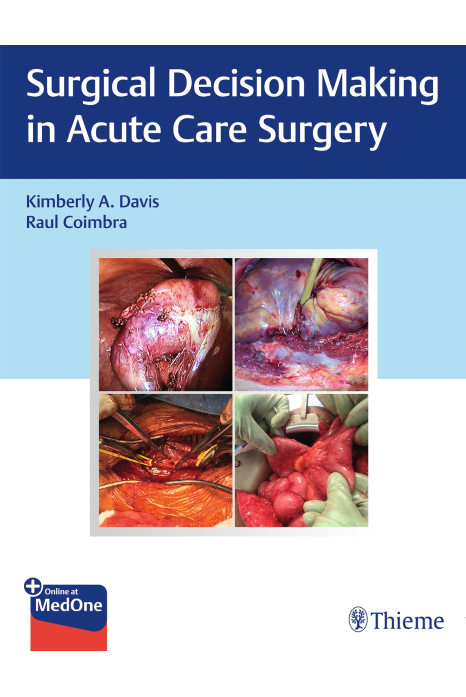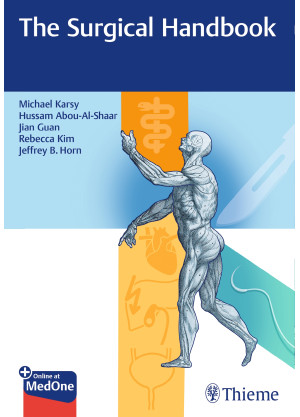Unique book provides comprehensive discussion of MIS versus traditional techniques in modern Acute Care Surgery
The combination of a surgeon shortage and poor access to emergency surgical care led to establishment of the Acute Care Surgery paradigm and subspecialty in 2003. Concurrently, minimally invasive approaches revolutionized surgical practice in the 21st century. In the U.S., acute care surgeons stand at the front line of patient care for emergency general surgery, trauma, and surgical critical care, and thus are positioned to positively impact healthcare delivery and costs. Surgical Decision Making in Acute Care Surgery by renowned surgeons Kimberly Davis and Raul Coimbra is the first text that comprehensively discusses when to use minimally invasive techniques and advanced technology versus traditional open procedures in acute traumatic and non-traumatic surgical emergencies.
The text begins with three opening chapters covering the background of the Acute Care Surgery subspecialty, anatomic and physiological considerations, and the impact of acute surgical illness on pre- and post-operative critical care decisions. Subsequent chapters outline surgical approaches for commonly encountered acute conditions. Trauma chapters cover interventions for cervical, blunt and penetrating abdominal, and thoracic injuries. Emergency general surgery topics run the gamut from appendicitis to emergency management of paraesophageal hernias and esophageal perforations. An impressive group of senior surgeons and younger rising stars in American surgery share their expertise throughout the book.
Key Highlights
- Disease-specific chapters include epidemiology, pathogenesis, diagnostic tools, treatment strategies, surgical techniques, cost analyses, complications, and national guidelines where available
- Subchapters feature expert commentary on preceding chapters, including clinical pearls and controversies (e.g. operative vs. nonoperative management)
- In-depth discussion of surgical decision making encompasses the type of surgical approach, as well as indications and contraindications for MIS
- The roles of MIS procedures such as laparoscopy, thoracoscopy, radiology-based percutaneous techniques, as well as endovascular surgery are examined
The quintessential resource on contemporary Acute Care Surgery practice, this is a must-read for residents, junior faculty, and practicing surgeons in this discipline.
This book includes complimentary access to a digital copy on https://medone.thieme.com.
1 The Definition of Acute Care Surgery
2 Anatomic and Physiological Considerations
3 Impact of Acute Surgical Illness on Critical Care Decisions Pre- and Postoperatively
4 Cervical Trauma
5 Blunt Abdominal Trauma
6 Penetrating Abdominal Trauma
7 Thoracic Trauma
8 Vascular Trauma
9 Appendicitis
10 Acute Cholecystitis
11 Acute Diverticulitis
12 A Modern Approach to Complicated Pancreatitis
13 Inflammatory/Infectious Bowel Disease
14 Gastroduodenal Ulcers Requiring Surgery
15 Intestinal Bowel Obstruction
16 Surgical Management of Incarcerated Hernias
17 Mesenteric Ischemia
18 Esophageal Emergencies: Emergency Management of Paraesophageal Hernias and Esophageal Perforations














